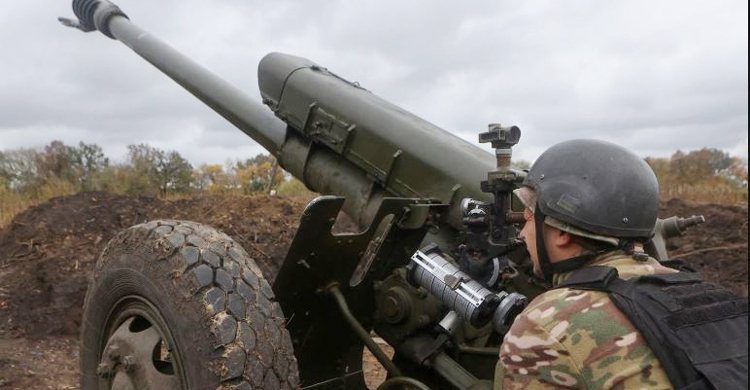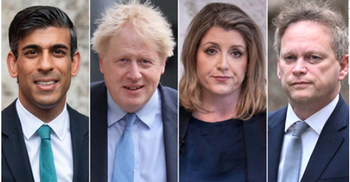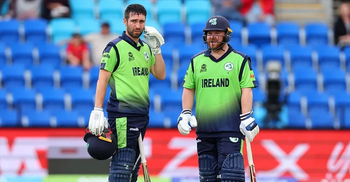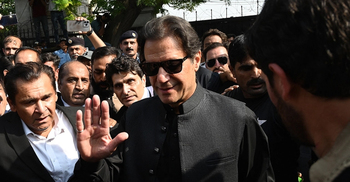‘Much softer’: Is Russia eyeing a way out of the Ukraine war?

Russian President Vladimir Putin may be softening his hardline stance on the war in Ukraine as Moscow’s defence minister held rare talks with his United States counterpart after a spate of battlefield setbacks.
Turkish President Recep Tayyip Erdogan, who has mediated between Russia and Ukraine, said on Friday that Putin appeared to be “much softer and more open to negotiations” with Ukraine than in the past.
“We are not without hope,” Erdogan said of the possibility of talks to end the conflict.
Kremlin spokesman Dmitry Peskov told reporters on Friday that Putin has been open for negotiations “from the very beginning” and “nothing has changed”.
“If you remember, President Putin tried to initiate talks with both NATO and the United States even before the special military operation,” he said.
“Putin was open to negotiations when a document was almost agreed on between Russian and Ukrainian [negotiators]. So in that respect, nothing has changed. The position of the Ukrainian side has changed… Ukrainian law now prohibits any negotiations,” Peskov added.
Earlier this month, Russian Foreign Minister Sergey Lavrov said in an interview that Russia was willing to engage with the United States or Turkey on ways to end the war, now in its eighth month, but had yet to receive any serious proposal to negotiate.
The biggest conflict in Europe in decades has drawn comparisons with the 1962 Cuban Missile Crisis, which brought the world to the brink of nuclear war and raised questions about whether Washington and Moscow should engage in talks to avoid an expansion of the conflict, including a nuclear confrontation.
‘Maintaining communication’
Russian Defence Minister Sergey Shoigu, meanwhile, spoke on the telephone with US Pentagon chief Lloyd Austin on Friday - their first call in five months.
The two talked about “international security problems, notably the situation in Ukraine”, the Russian defence ministry said.
“Secretary Austin emphasised the importance of maintaining lines of communication amid the ongoing war against Ukraine,” the Pentagon said in a statement.
It was only the second time Shoigu and Austin spoke since the start of the invasion on February 24. On May 13, Austin pressed for an immediate ceasefire and made the same request to have open lines of communication.
At the time, Russia’s invading force had been beaten back from the capital Kyiv but it was making steady gains in the eastern Donbas and Kharkiv regions and had consolidated positions in the south.
Six months on, however, Ukraine’s forces have pushed back on all fronts.
Kyiv’s military in recent weeks - aided by Western weapons - has advanced towards the southern Kherson region’s main city, also called Kherson.
Kherson was the first crucial city to fall to Moscow’s troops and retaking it would be a major victory in Ukraine’s counteroffensive. Russian-installed officials are trying to evacuate up to 60,000 people from the Kherson region for their safety and to allow the military to build fortifications.
Ukraine’s push in the south comes after a sweeping counterattack in the northeast Kharkiv region, which badly impaired Russia’s supply routes and logistics corridors in the Donbas.
‘Meaningful diplomacy’
Whether the military setbacks have forced Russia into looking at possible ways out of Ukraine remains to be seen.
US Secretary of State Antony Blinken said on Friday that Washington will consider every means to advance diplomacy with Russia if it sees an opening but at the moment Moscow shows no sign of willingness to engage in meaningful talks.
“Every indication is that far from being willing to engage in meaningful diplomacy, President Putin continues to push in the opposite direction,” Blinken said at a press conference.
“We consider and will consider every means to advance diplomacy if we see an opening to advance it by whatever means, of course we’ll always look at it,” he said but added Moscow was instead “doubling and tripling down” on its aggression.
Russia intensified its missile and drone attacks on Ukraine’s power and water infrastructure this week in what Ukraine and the West call a campaign to intimidate civilians ahead of the cold winter.
A new Mariupol?
For now, the next significant battle appears to be for Kherson city.
Analyst Mykhailo Samus said Russian troops should have been evacuated “a long time ago”, but added he thought it was unlikely the Ukrainians would want to attack the Russian-held city where tens of thousands of residents remain.
“The Ukrainians won’t conduct any battle for Kherson. They don’t attack and destroy cities like Russia, like Mariupol,” Samus said, referring to the city the Russians pounded to rubble earlier in the war.
Retired US General Ben Hodges agreed the Ukrainians were likely to avoid a “giant fight inside the city” and instead are “keeping these Russian troops fixed there so that they cannot escape”.
Pierre Grasser, a researcher tied to Paris’ Sorbonne University, said Ukrainian troops were having to carefully weigh their movements outside the city. Any closer and “they will be entering the Kherson suburbs and that could be dangerous”, he said.
“Urban warfare always leads to many deaths on the attacker’s side [and] it would risk a new Mariupol” in terms of damage, said Grasser.
Valeriy Zaluzhnyi, commander-in-chief of Ukraine’s armed forces, faces a dilemma, analysts say.
“Besiege [the city] for as long as it takes or annihilate it and reduce it to rubble,” retired French General Michel Yakovleff said, calling it a “terrible choice”.
Source: Aljazeera and news agencies







